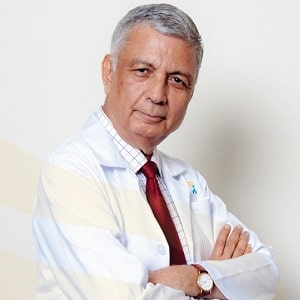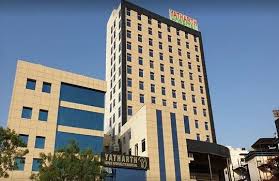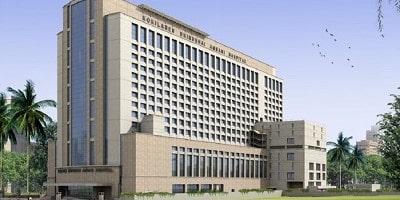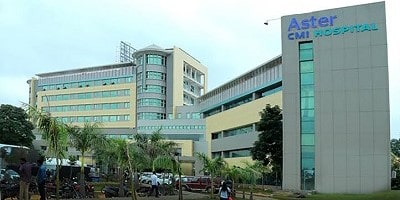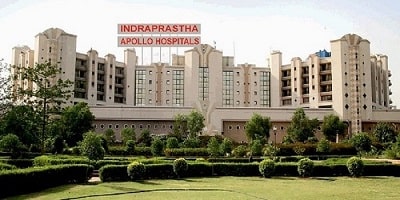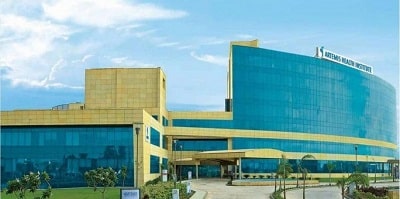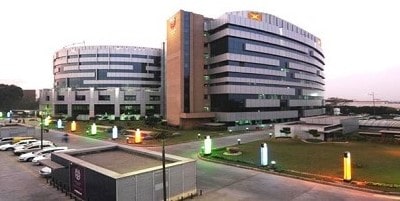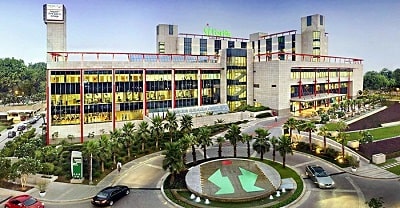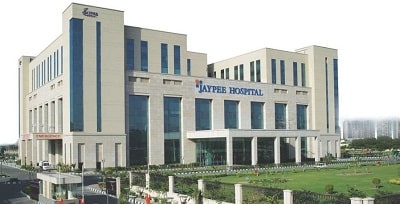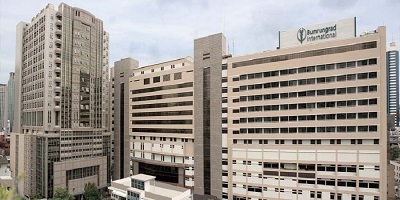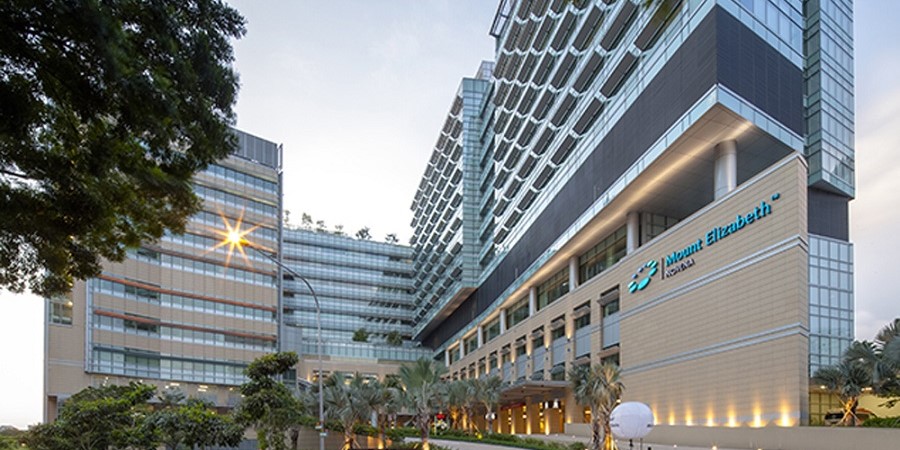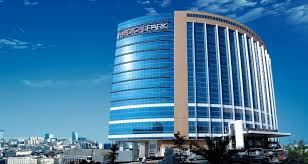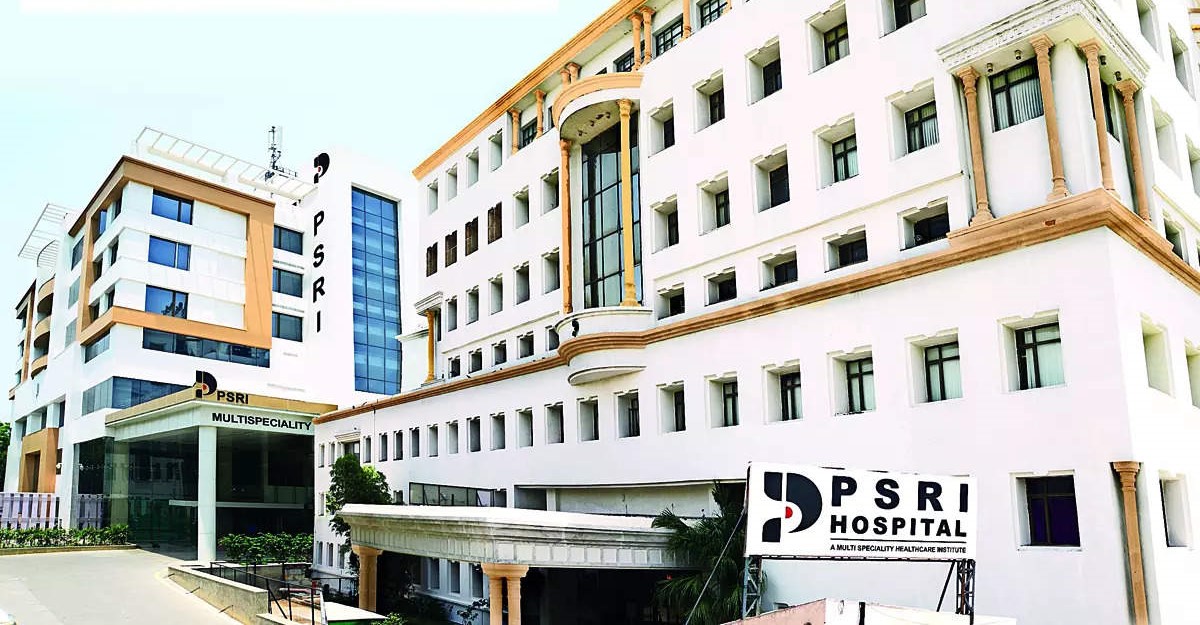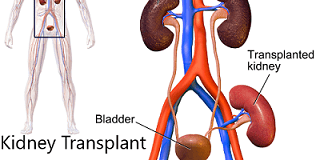
Duration of Treatment
usually takes 3 to 4 hours
Days of Stay
usually 7 to 15 days in the hospital and one month outside the hospital.
Anesthesia
General anaesthesia.
Cost
13000 to 18000 USD
How Much Does Kidney Transplant Surgery Cost in India?
"Looking for kidney transplant surgery cost in India at the best kidney hospital at an affordable cost in different cities like Delhi, Mumbai, Chennai, Kolkata, and Bangalore? Here, we answer the question and explain how to choose the best kidney transplant surgeon for better results; our surgeon successfully did more than 2000 transplants.
- Kidney transplant cost in India: starting from 13,000 to 18,000 USD
- Robotic Kidney transplant cost: starting from 15,000 to 19,000 USD
- Medicine Cost for a Lifetime: 200 to 300 USD (per month).
- Hotel Cost Near Hospital - starting from 18 to 50 USD (as per hotel services)
- Food Cost - starting from 20 to 30 USD (per day)
- Miscellaneous cost - 20 USD (per day).
- It's only a rough estimate, final treatment will be planned after the fresh evaluation reports.
- Kidney transplant surgery costs in India can vary per the diagnosis, patient conditions, kidney surgeon experience, hospital facilities, and city.
- To make an appointment, learn more about kidney Transplant surgery Hospital in India, read the below information, or call / WhatsApp/ Viber - our experts to answer at +91 9582708782.
Who is the best Kidney Transplant Surgeon in India?
- Dr. Anant Kumar (urologist) - Max Hospital
- Dr. Sanjay Gogoi (urologist) - Manipal Hospital
- Dr. Aditya Pradhan (urologist) - BLK Hospital
- Dr. Harsha Jauhari (urologist) - Artemis Hospital
- Dr. Vikram Sharma (urologist) - Fortis Hospital
- Dr. Vijaya Rajakumari (urologist) - Apollo Delhi
- Dr. Vikas Agarwal (urologist) - Aakash Hospital
- Dr. Amit Kumar Devra ( urologist) - Jaypee Hospital
- Dr. Narendra S (urologist) - Global Hospital
Which is the Best Kidney Transplant Surgery Hospital in India?
Selecting the right kidney transplant hospital is a critical decision that significantly impacts the success of the procedure and the patient’s long-term health. With numerous world-class hospitals in India offering kidney transplant services, it’s essential to evaluate key factors to make an informed choice. Here’s a comprehensive guide to help you choose the best kidney transplant hospital in India:
Key Factors to Consider When Choosing a Kidney Transplant Hospital
-
Hospital Accreditation & Reputation
✅ NABH & JCI Accreditation – Ensure the hospital adheres to global healthcare standards.
✅ Renowned Hospital Network – Opt for hospitals with a strong track record in nephrology and transplant care.
✅ Awards & Recognitions – Look for institutions with national and international recognition for transplant excellence. -
Kidney Transplant Success Rate
✅ High Survival Rates – Check 1-year and 5-year survival rates for transplant patients.
✅ Experience with Complex Cases – Ability to handle high-risk cases, ABO-incompatible transplants, and pediatric kidney transplants.
✅ Post-Transplant Recovery Rate – Low rates of complications, infections, and organ rejection. -
Expertise of the Transplant Team
✅ Experienced Nephrologists & Urologists – Verify the credentials and expertise of the transplant specialists.
✅ Multidisciplinary Team – Includes nephrologists, urologists, transplant surgeons, anesthetists, immunologists, and dieticians.
✅ Patient Testimonials – Read real patient experiences and reviews. -
Availability of Advanced Procedures
✅ Laparoscopic Donor Nephrectomy – Minimally invasive surgery for donors, ensuring quicker recovery.
✅ ABO-Incompatible & High-Risk Transplants – Advanced desensitization techniques for mismatched blood group transplants.
✅ Pediatric & Simultaneous Organ Transplants – Specialized care for children and multi-organ transplant cases. -
Hospital Infrastructure & Post-Transplant Care
✅ Dedicated Transplant ICU – Ensures 24/7 monitoring to prevent infections and complications.
✅ Advanced Dialysis & Renal Care Centers – Well-equipped dialysis units for pre- and post-transplant care.
✅ Immunosuppressive Therapy & Long-Term Care – Cutting-edge therapies to prevent organ rejection. -
Affordability & Insurance Coverage
✅ Transparent Pricing – Clear breakdown of expenses with no hidden charges.
✅ Insurance & Financial Assistance – Tie-ups with major insurance providers and government transplant programs.
✅ Subsidized or Free Transplants – Some hospitals offer government-supported transplants for underprivileged patients. -
Ethical & Legal Compliance
✅ Government-Approved Transplant Program – Hospitals must comply with Indian organ donation and transplantation laws.
✅ Strict Donor Screening – Ensures ethical practices and no involvement in illegal organ trade.
✅ Legal Documentation & Counseling – Assistance with legal formalities for live or deceased donor transplants.
Top 10 Best Kidney Transplant Hospitals in India
Based on the above criteria, here are the top 10 hospitals renowned for kidney transplants in India:
- Medanta The Medicity, Gurugram
- Apollo Hospitals, Chennai & Delhi
- Fortis Hospitals, Gurugram & Mumbai
- Max Super Speciality Hospital, Saket, New Delhi
- Manipal Hospitals, Bangalore & Pan India
- Metro Hospital, New Delhi
- Global Hospitals, Chennai, Hyderabad, & Mumbai
- Artemis Hospital, Gurugram
- Amrita Hospital, Faridabad & Kochi
- Yashoda Hospitals, Hyderabad
Detailed Insights into Top Hospitals
10. Yashoda Hospitals, Hyderabad
Why Choose Yashoda?
-
Comprehensive pre- and post-transplant care.
-
Advanced surgical techniques and ethical transplant practices.
-
Affordable treatment with insurance support.
9. Amrita Hospital, Faridabad & Kochi
Why Choose Amrita?
-
Expertise in ABO-incompatible and pediatric kidney transplants.
-
State-of-the-art dialysis center and transplant ICU.
-
Affordable treatment with financial assistance options.
8. Artemis Hospital, Gurugram
Why Choose Artemis?
-
Minimally invasive laparoscopic donor nephrectomy.
-
Specialization in pediatric and high-risk transplants.
-
Affordable Kidney Transplant cost ranging from ₹6,00,000–₹12,00,000.
7. Global Hospitals, Chennai, Hyderabad, & Mumbai
Why Choose Global?
-
Expertise in complex and high-risk kidney transplants.
-
Advanced infrastructure and post-transplant care facilities.
-
High success rates and patient-centric approach.
-
Best Kidney Transplant Hospital in India
6. Metro Hospital, New Delhi
Why Choose Metro?
-
Advanced diagnostic and surgical techniques.
-
Ethical and government-compliant transplant program.
-
Affordable treatment with insurance support.
5. Manipal Hospitals, Bangalore & Pan India
Why Choose Manipal?
-
State-of-the-art dialysis and renal care units.
-
Expertise in ABO-incompatible and high-risk transplants.
-
Affordable treatment with financial assistance options.
-
And listed Top 10 Best Kidney Transplant Hospital in India
4. Max Super Speciality Hospital, Saket, New Delhi
Why Choose Max?
-
Renowned for its multidisciplinary transplant team and advanced dialysis facilities.
-
Expertise in pediatric and combined organ transplants.
-
Transparent pricing and high success rates.
3. Fortis Hospitals, Gurugram & Mumbai
Why Choose Fortis?
-
Minimally invasive laparoscopic donor nephrectomy for faster recovery.
-
High success rates and ethical organ transplant practices.
-
Affordable treatment with insurance and financial assistance options.
Cost: 14,000–14,000–16,000.
2. Apollo Hospitals, Chennai & Delhi
Why Choose Apollo?
-
Over 90% success rate in kidney transplants.
-
Expertise in ABO-incompatible and high-risk transplants.
-
Comprehensive pre- and post-transplant care with a dedicated transplant ICU.
-
And listed Top 10 Best Kidney Transplant Hospital in India
Cost: ₹6,00,000–₹12,00,000.
1. Medanta The Medicity, Gurugram
Why Choose Medanta?
-
Renowned for its high success rates and advanced robotic-assisted kidney transplants.
-
Led by Dr. Rajesh Ahlawat, a pioneer in urology and transplant surgery.
-
State-of-the-art infrastructure, including a dedicated transplant ICU and advanced HLA typing labs.
Cost: Approximately 15,000–15,000–20,000.
Why did you choose Peace Medical Tourism for Kidney transplant surgery in India?
We are one of the best health care services providers with more than 10 years of experience in providing the best treatment at an affordable cost and guide our international patients to choose the best hospital and surgeon as per the patient's budget and treatment.
- Comprehensive and 100% transparency.
- Help to Choose the Best Option for Medical Treatment.
- Based on the highest international standard in medical tourism.
- Qualified kidney transplant surgeon - For more success rate of surgery.
- Affordable cost of Kidney Transplant India
- Patient Safety - Using high-quality instruments for zero infection rate and best results.
Conclusion
India is home to some of the best kidney transplant hospitals in the world, offering advanced medical care, experienced transplant teams, and affordable treatment options. By considering factors such as accreditation, success rates, infrastructure, and ethical practices, you can make an informed decision for your kidney transplant journey.
Would you like detailed comparisons of these hospitals based on cost, facilities, and success rates? Feel free to reach out for personalized assistance! 😊
What is Kidney Transplant Surgery?
Kidney transplantation is a surgical procedure to replace a diseased kidney with a healthy kidney from a living or brain-dead donor (Cadaver). A kidney transplant is often the best treatment for kidney failure. Only one donated kidney is needed to replace two failed kidneys, making living-donor kidney transplantation an option. Every year more than 80,000 kidney transplants are performed worldwide.
The reason for Kidney failure includes:
- Congenital condition
- Infections
- Diabetes mellitus
- Malignant hypertension
- Glomerulonephritis
- Polycystic Kidney Disease
Procedures for kidney transplantation include:
- Cadaveric renal transplantation
- Cadaver-donor kidney transplantation
- Living donor kidney transplants (from both related and unrelated donors)
- Laparoscopic donor Nephrectomy
- Robotic kidney transplant.
What are the signs and symptoms of Kidney transplant surgery?
- Swelling of arms and legs
- Shortness of breath
- Dehydration
- Urinary problems
- Bleeding from any part of the body
- Nausea or vomiting
- Itching
What is the risk of Kidney transplant surgery?
- Risks of anesthesia
- Bleeding
- Infection
- Temporary dizziness
- Leaking from or blockage of the tube (ureter)
- Failure of the donated kidney
- Rejection of the donated kidney
- Death, heart attack and stroke
How to prepare for Kidney transplant surgery?
Patient and Donor Evaluation
The donor and recipient should be in the ABO blood group and crossmatch (human leukocyte antigen -- HLA) compatible.
Blood Type Compatibility Chart
- Recipient blood type is A Donor blood type must be A or O
- Recipient blood type is B Donor blood type must be B or O
- Recipient blood type is O Donor blood type must be O
- Recipient blood type is AB Donor blood type can be A, B, AB, or O
The patient and Donor will require undergoing some pre-operative investigation in order to meet the surgical requirements.
The evaluation includes:
- Mental health evaluation (Psychiatrist or Psychologist).
- Blood and Diagnostic tests. ( Blood test, CT Scan, Echo, X-ray, )
- Complete health evaluation. ( Eye, Heart, Dental,
- The patient and Donor are required to go for PSC ( Pre-surgery check-up ) to do some blood tests, ECG, and ECH for Cardiac check-up and urine tests to know whether he /she is fit for surgery or not.
- Before the operation patient will be asked to sign a consent form, which gives permission to the surgeon to proceed with the treatment.
- The doctor should be informed about any medication that the patient may be taking.
- The patient is admitted to the hospital on the same days before the procedures and advised to remain empty stomach/Fasting.
- Thinner medicines have to stop before ten days of surgery.
- The Kidney Transplant surgery cost starts from 13,000 to 18,000 USD the cost varies depending upon the patient’s condition, the dose of anti-rejection drugs for a kidney transplant, hospital standards, urology surgeon’s qualifications & experience.
zWhat are the best procedures for Kidney transplant surgery?
Nephrectomy surgery for kidney transplantation – Nephrectomy is the surgical removal of a kidney. There are two types of nephrectomy for a diseased kidney: partial and radical.
Laparoscopic surgery for kidney transplantation - Laparoscopic surgery for kidney implantation has also reduced the incision by about 7 cm for insertion of the kidney with an additional 3 to 4 ports for laparoscopic instruments.
Robotic surgery for kidney transplantation- Robotic Kidney Transplants in India is the latest development of minimally invasive surgery for kidney transplantation. In this procedure, the surgeon makes a small incision of about 7 cm to introduce the kidney with 4 or 5 laparoscopic ports.
Before surgery, the surgeon and anesthesia will guide you about kidney transplant surgery's benefits and risk factors.
Step 1 – Anesthesia: Kidney transplant surgery takes 3 to 4 hours depending upon the procedures by giving general anesthesia to relieve pain.
Step 2 – The incision: The Kidney transplant surgeon makes an incision into the lower abdomen on one side. During surgery, the surgical team monitors the patient's heart rate, blood pressure, and blood oxygen level throughout the procedure. The surgeon visually inspects the donor’s kidney before implanting it. The donor's kidney is placed in the patient’s lower abdomen and the donor kidney's blood vessels are then connected to the recipient's arteries and veins. The surgeon then connects the ureter to the bladder. After that kidney will begin to filter and remove wastes and produce urine. In most cases, damaged kidneys are not removed unless the patient has a severe infection of the kidney.
Step 3 – Closing the incisions: The Kidney transplant surgeon flaps the skin after the surgery with the help of Sutures, skin adhesives, tapes, or clips that close the skin incisions.
What is the post-op care for Kidney transplant surgery?
- The doctor will give complete information about post care of surgery, regarding recovery; proper caring of incisions, taking medications, and management.
- Stitches or staples will be removed after 15 days of surgery.
- Patients are allowed to stand and walk using a walking after 48 hours of the surgery
- If a drain was inserted in the lower abdomen during surgery to help with fluid removal, it will remove after 5 to 10 days of surgery.
- If a drain was used this will remain for up to 10 days after surgery.
- In some cases, if the drain was not removed after 10 days of surgery then dialysis might be used temporarily to remove anything from the new kidney.
- The patient needs to take anti-rejection medication lifelong and be monitored regularly with a blood test, its helps keep your immune system from attacking and rejecting your new kidney.
- Patients are advised to go for skin check-ups with a dermatologist to screen for skin cancer.
What is the success rate of Kidney transplant surgery?
The success rate of kidney transplantation depends on the patient's condition, donor organ, and surgeon's experience. Kidneys from living donors generally last longer than cadaver donors. Sometimes the rejection of the kidney is also a cause of unsuccessful. The success rate is more than 95%.
What Questions Are Ask before Kidney transplant surgery?
- Are you a board-certified top Kidney transplant surgeon in India?
- How many years of experience do you have in this field?
- Is India good for Kidney Transplant Surgery in India?
- How many surgeries are you doing every day?
- Does your hospital certify to perform these types of Kidney transplant surgery?
- Am I a good patient for you for this procedure?
- Let me know the success rates and how long time will take for recovery.
- Which hospitals are best for kidney transplant hospitals in India?
- What treatment plan do you recommend and Why?
- What are the advantages and disadvantages of having Kidney transplant surgery?
- How should I prepare for this surgery?
- How long do I have to stay in the hospital and outside the hospital?
- What are the risk factors for this type of Kidney transplant?
- How long does a transplanted kidney last on average?
- What is the cost of kidney transplant Surgery in India?
- What are the signs and symptoms of kidney rejection?
- When can I go for everyday activities, including exercise?
- Do I have stitches, staples, and bandages?
- Do I have a scar or other permanent effects from the surgery?
- Do I need to go with another surgery in the future?
- Do I need any follow-up appointments or tests after my surgery?
Top Doctors
Top Hospitals
KIDNEY TRANSPLANT SURGERY COST IN INDIA

Duration of Treatment
usually takes 3 to 4 hours
Days of Stay
usually 7 to 15 days in the hospital and one month outside the hospital.
Anesthesia
General anaesthesia.
Cost
13000 to 18000 USD
How Much Does Kidney Transplant Surgery Cost in India?
"Looking for kidney transplant surgery cost in India at the best kidney hospital at an affordable cost in different cities like Delhi, Mumbai, Chennai, Kolkata, and Bangalore? Here, we answer the question and explain how to choose the best kidney transplant surgeon for better results; our surgeon successfully did more than 2000 transplants.
- Kidney transplant cost in India: starting from 13,000 to 18,000 USD
- Robotic Kidney transplant cost: starting from 15,000 to 19,000 USD
- Medicine Cost for a Lifetime: 200 to 300 USD (per month).
- Hotel Cost Near Hospital - starting from 18 to 50 USD (as per hotel services)
- Food Cost - starting from 20 to 30 USD (per day)
- Miscellaneous cost - 20 USD (per day).
- It's only a rough estimate, final treatment will be planned after the fresh evaluation reports.
- Kidney transplant surgery costs in India can vary per the diagnosis, patient conditions, kidney surgeon experience, hospital facilities, and city.
- To make an appointment, learn more about kidney Transplant surgery Hospital in India, read the below information, or call / WhatsApp/ Viber - our experts to answer at +91 9582708782.
Who is the best Kidney Transplant Surgeon in India?
- Dr. Anant Kumar (urologist) - Max Hospital
- Dr. Sanjay Gogoi (urologist) - Manipal Hospital
- Dr. Aditya Pradhan (urologist) - BLK Hospital
- Dr. Harsha Jauhari (urologist) - Artemis Hospital
- Dr. Vikram Sharma (urologist) - Fortis Hospital
- Dr. Vijaya Rajakumari (urologist) - Apollo Delhi
- Dr. Vikas Agarwal (urologist) - Aakash Hospital
- Dr. Amit Kumar Devra ( urologist) - Jaypee Hospital
- Dr. Narendra S (urologist) - Global Hospital
Which is the Best Kidney Transplant Surgery Hospital in India?
Selecting the right kidney transplant hospital is a critical decision that significantly impacts the success of the procedure and the patient’s long-term health. With numerous world-class hospitals in India offering kidney transplant services, it’s essential to evaluate key factors to make an informed choice. Here’s a comprehensive guide to help you choose the best kidney transplant hospital in India:
Key Factors to Consider When Choosing a Kidney Transplant Hospital
-
Hospital Accreditation & Reputation
✅ NABH & JCI Accreditation – Ensure the hospital adheres to global healthcare standards.
✅ Renowned Hospital Network – Opt for hospitals with a strong track record in nephrology and transplant care.
✅ Awards & Recognitions – Look for institutions with national and international recognition for transplant excellence. -
Kidney Transplant Success Rate
✅ High Survival Rates – Check 1-year and 5-year survival rates for transplant patients.
✅ Experience with Complex Cases – Ability to handle high-risk cases, ABO-incompatible transplants, and pediatric kidney transplants.
✅ Post-Transplant Recovery Rate – Low rates of complications, infections, and organ rejection. -
Expertise of the Transplant Team
✅ Experienced Nephrologists & Urologists – Verify the credentials and expertise of the transplant specialists.
✅ Multidisciplinary Team – Includes nephrologists, urologists, transplant surgeons, anesthetists, immunologists, and dieticians.
✅ Patient Testimonials – Read real patient experiences and reviews. -
Availability of Advanced Procedures
✅ Laparoscopic Donor Nephrectomy – Minimally invasive surgery for donors, ensuring quicker recovery.
✅ ABO-Incompatible & High-Risk Transplants – Advanced desensitization techniques for mismatched blood group transplants.
✅ Pediatric & Simultaneous Organ Transplants – Specialized care for children and multi-organ transplant cases. -
Hospital Infrastructure & Post-Transplant Care
✅ Dedicated Transplant ICU – Ensures 24/7 monitoring to prevent infections and complications.
✅ Advanced Dialysis & Renal Care Centers – Well-equipped dialysis units for pre- and post-transplant care.
✅ Immunosuppressive Therapy & Long-Term Care – Cutting-edge therapies to prevent organ rejection. -
Affordability & Insurance Coverage
✅ Transparent Pricing – Clear breakdown of expenses with no hidden charges.
✅ Insurance & Financial Assistance – Tie-ups with major insurance providers and government transplant programs.
✅ Subsidized or Free Transplants – Some hospitals offer government-supported transplants for underprivileged patients. -
Ethical & Legal Compliance
✅ Government-Approved Transplant Program – Hospitals must comply with Indian organ donation and transplantation laws.
✅ Strict Donor Screening – Ensures ethical practices and no involvement in illegal organ trade.
✅ Legal Documentation & Counseling – Assistance with legal formalities for live or deceased donor transplants.
Top 10 Best Kidney Transplant Hospitals in India
Based on the above criteria, here are the top 10 hospitals renowned for kidney transplants in India:
- Medanta The Medicity, Gurugram
- Apollo Hospitals, Chennai & Delhi
- Fortis Hospitals, Gurugram & Mumbai
- Max Super Speciality Hospital, Saket, New Delhi
- Manipal Hospitals, Bangalore & Pan India
- Metro Hospital, New Delhi
- Global Hospitals, Chennai, Hyderabad, & Mumbai
- Artemis Hospital, Gurugram
- Amrita Hospital, Faridabad & Kochi
- Yashoda Hospitals, Hyderabad
Detailed Insights into Top Hospitals
10. Yashoda Hospitals, Hyderabad
Why Choose Yashoda?
-
Comprehensive pre- and post-transplant care.
-
Advanced surgical techniques and ethical transplant practices.
-
Affordable treatment with insurance support.
9. Amrita Hospital, Faridabad & Kochi
Why Choose Amrita?
-
Expertise in ABO-incompatible and pediatric kidney transplants.
-
State-of-the-art dialysis center and transplant ICU.
-
Affordable treatment with financial assistance options.
8. Artemis Hospital, Gurugram
Why Choose Artemis?
-
Minimally invasive laparoscopic donor nephrectomy.
-
Specialization in pediatric and high-risk transplants.
-
Affordable Kidney Transplant cost ranging from ₹6,00,000–₹12,00,000.
7. Global Hospitals, Chennai, Hyderabad, & Mumbai
Why Choose Global?
-
Expertise in complex and high-risk kidney transplants.
-
Advanced infrastructure and post-transplant care facilities.
-
High success rates and patient-centric approach.
-
Best Kidney Transplant Hospital in India
6. Metro Hospital, New Delhi
Why Choose Metro?
-
Advanced diagnostic and surgical techniques.
-
Ethical and government-compliant transplant program.
-
Affordable treatment with insurance support.
5. Manipal Hospitals, Bangalore & Pan India
Why Choose Manipal?
-
State-of-the-art dialysis and renal care units.
-
Expertise in ABO-incompatible and high-risk transplants.
-
Affordable treatment with financial assistance options.
-
And listed Top 10 Best Kidney Transplant Hospital in India
4. Max Super Speciality Hospital, Saket, New Delhi
Why Choose Max?
-
Renowned for its multidisciplinary transplant team and advanced dialysis facilities.
-
Expertise in pediatric and combined organ transplants.
-
Transparent pricing and high success rates.
3. Fortis Hospitals, Gurugram & Mumbai
Why Choose Fortis?
-
Minimally invasive laparoscopic donor nephrectomy for faster recovery.
-
High success rates and ethical organ transplant practices.
-
Affordable treatment with insurance and financial assistance options.
Cost: 14,000–14,000–16,000.
2. Apollo Hospitals, Chennai & Delhi
Why Choose Apollo?
-
Over 90% success rate in kidney transplants.
-
Expertise in ABO-incompatible and high-risk transplants.
-
Comprehensive pre- and post-transplant care with a dedicated transplant ICU.
-
And listed Top 10 Best Kidney Transplant Hospital in India
Cost: ₹6,00,000–₹12,00,000.
1. Medanta The Medicity, Gurugram
Why Choose Medanta?
-
Renowned for its high success rates and advanced robotic-assisted kidney transplants.
-
Led by Dr. Rajesh Ahlawat, a pioneer in urology and transplant surgery.
-
State-of-the-art infrastructure, including a dedicated transplant ICU and advanced HLA typing labs.
Cost: Approximately 15,000–15,000–20,000.
Why did you choose Peace Medical Tourism for Kidney transplant surgery in India?
We are one of the best health care services providers with more than 10 years of experience in providing the best treatment at an affordable cost and guide our international patients to choose the best hospital and surgeon as per the patient's budget and treatment.
- Comprehensive and 100% transparency.
- Help to Choose the Best Option for Medical Treatment.
- Based on the highest international standard in medical tourism.
- Qualified kidney transplant surgeon - For more success rate of surgery.
- Affordable cost of Kidney Transplant India
- Patient Safety - Using high-quality instruments for zero infection rate and best results.
Conclusion
India is home to some of the best kidney transplant hospitals in the world, offering advanced medical care, experienced transplant teams, and affordable treatment options. By considering factors such as accreditation, success rates, infrastructure, and ethical practices, you can make an informed decision for your kidney transplant journey.
Would you like detailed comparisons of these hospitals based on cost, facilities, and success rates? Feel free to reach out for personalized assistance! 😊
What is Kidney Transplant Surgery?
Kidney transplantation is a surgical procedure to replace a diseased kidney with a healthy kidney from a living or brain-dead donor (Cadaver). A kidney transplant is often the best treatment for kidney failure. Only one donated kidney is needed to replace two failed kidneys, making living-donor kidney transplantation an option. Every year more than 80,000 kidney transplants are performed worldwide.
The reason for Kidney failure includes:
- Congenital condition
- Infections
- Diabetes mellitus
- Malignant hypertension
- Glomerulonephritis
- Polycystic Kidney Disease
Procedures for kidney transplantation include:
- Cadaveric renal transplantation
- Cadaver-donor kidney transplantation
- Living donor kidney transplants (from both related and unrelated donors)
- Laparoscopic donor Nephrectomy
- Robotic kidney transplant.
symptoms
What are the signs and symptoms of Kidney transplant surgery?
- Swelling of arms and legs
- Shortness of breath
- Dehydration
- Urinary problems
- Bleeding from any part of the body
- Nausea or vomiting
- Itching
risk factors
What is the risk of Kidney transplant surgery?
- Risks of anesthesia
- Bleeding
- Infection
- Temporary dizziness
- Leaking from or blockage of the tube (ureter)
- Failure of the donated kidney
- Rejection of the donated kidney
- Death, heart attack and stroke
preparation
How to prepare for Kidney transplant surgery?
Patient and Donor Evaluation
The donor and recipient should be in the ABO blood group and crossmatch (human leukocyte antigen -- HLA) compatible.
Blood Type Compatibility Chart
- Recipient blood type is A Donor blood type must be A or O
- Recipient blood type is B Donor blood type must be B or O
- Recipient blood type is O Donor blood type must be O
- Recipient blood type is AB Donor blood type can be A, B, AB, or O
The patient and Donor will require undergoing some pre-operative investigation in order to meet the surgical requirements.
The evaluation includes:
- Mental health evaluation (Psychiatrist or Psychologist).
- Blood and Diagnostic tests. ( Blood test, CT Scan, Echo, X-ray, )
- Complete health evaluation. ( Eye, Heart, Dental,
- The patient and Donor are required to go for PSC ( Pre-surgery check-up ) to do some blood tests, ECG, and ECH for Cardiac check-up and urine tests to know whether he /she is fit for surgery or not.
- Before the operation patient will be asked to sign a consent form, which gives permission to the surgeon to proceed with the treatment.
- The doctor should be informed about any medication that the patient may be taking.
- The patient is admitted to the hospital on the same days before the procedures and advised to remain empty stomach/Fasting.
- Thinner medicines have to stop before ten days of surgery.
- The Kidney Transplant surgery cost starts from 13,000 to 18,000 USD the cost varies depending upon the patient’s condition, the dose of anti-rejection drugs for a kidney transplant, hospital standards, urology surgeon’s qualifications & experience.
procedure
zWhat are the best procedures for Kidney transplant surgery?
Nephrectomy surgery for kidney transplantation – Nephrectomy is the surgical removal of a kidney. There are two types of nephrectomy for a diseased kidney: partial and radical.
Laparoscopic surgery for kidney transplantation - Laparoscopic surgery for kidney implantation has also reduced the incision by about 7 cm for insertion of the kidney with an additional 3 to 4 ports for laparoscopic instruments.
Robotic surgery for kidney transplantation- Robotic Kidney Transplants in India is the latest development of minimally invasive surgery for kidney transplantation. In this procedure, the surgeon makes a small incision of about 7 cm to introduce the kidney with 4 or 5 laparoscopic ports.
Before surgery, the surgeon and anesthesia will guide you about kidney transplant surgery's benefits and risk factors.
Step 1 – Anesthesia: Kidney transplant surgery takes 3 to 4 hours depending upon the procedures by giving general anesthesia to relieve pain.
Step 2 – The incision: The Kidney transplant surgeon makes an incision into the lower abdomen on one side. During surgery, the surgical team monitors the patient's heart rate, blood pressure, and blood oxygen level throughout the procedure. The surgeon visually inspects the donor’s kidney before implanting it. The donor's kidney is placed in the patient’s lower abdomen and the donor kidney's blood vessels are then connected to the recipient's arteries and veins. The surgeon then connects the ureter to the bladder. After that kidney will begin to filter and remove wastes and produce urine. In most cases, damaged kidneys are not removed unless the patient has a severe infection of the kidney.
Step 3 – Closing the incisions: The Kidney transplant surgeon flaps the skin after the surgery with the help of Sutures, skin adhesives, tapes, or clips that close the skin incisions.
post procedure
What is the post-op care for Kidney transplant surgery?
- The doctor will give complete information about post care of surgery, regarding recovery; proper caring of incisions, taking medications, and management.
- Stitches or staples will be removed after 15 days of surgery.
- Patients are allowed to stand and walk using a walking after 48 hours of the surgery
- If a drain was inserted in the lower abdomen during surgery to help with fluid removal, it will remove after 5 to 10 days of surgery.
- If a drain was used this will remain for up to 10 days after surgery.
- In some cases, if the drain was not removed after 10 days of surgery then dialysis might be used temporarily to remove anything from the new kidney.
- The patient needs to take anti-rejection medication lifelong and be monitored regularly with a blood test, its helps keep your immune system from attacking and rejecting your new kidney.
- Patients are advised to go for skin check-ups with a dermatologist to screen for skin cancer.
success rate
What is the success rate of Kidney transplant surgery?
The success rate of kidney transplantation depends on the patient's condition, donor organ, and surgeon's experience. Kidneys from living donors generally last longer than cadaver donors. Sometimes the rejection of the kidney is also a cause of unsuccessful. The success rate is more than 95%.
faqs from doctor
What Questions Are Ask before Kidney transplant surgery?
- Are you a board-certified top Kidney transplant surgeon in India?
- How many years of experience do you have in this field?
- Is India good for Kidney Transplant Surgery in India?
- How many surgeries are you doing every day?
- Does your hospital certify to perform these types of Kidney transplant surgery?
- Am I a good patient for you for this procedure?
- Let me know the success rates and how long time will take for recovery.
- Which hospitals are best for kidney transplant hospitals in India?
- What treatment plan do you recommend and Why?
- What are the advantages and disadvantages of having Kidney transplant surgery?
- How should I prepare for this surgery?
- How long do I have to stay in the hospital and outside the hospital?
- What are the risk factors for this type of Kidney transplant?
- How long does a transplanted kidney last on average?
- What is the cost of kidney transplant Surgery in India?
- What are the signs and symptoms of kidney rejection?
- When can I go for everyday activities, including exercise?
- Do I have stitches, staples, and bandages?
- Do I have a scar or other permanent effects from the surgery?
- Do I need to go with another surgery in the future?
- Do I need any follow-up appointments or tests after my surgery?






